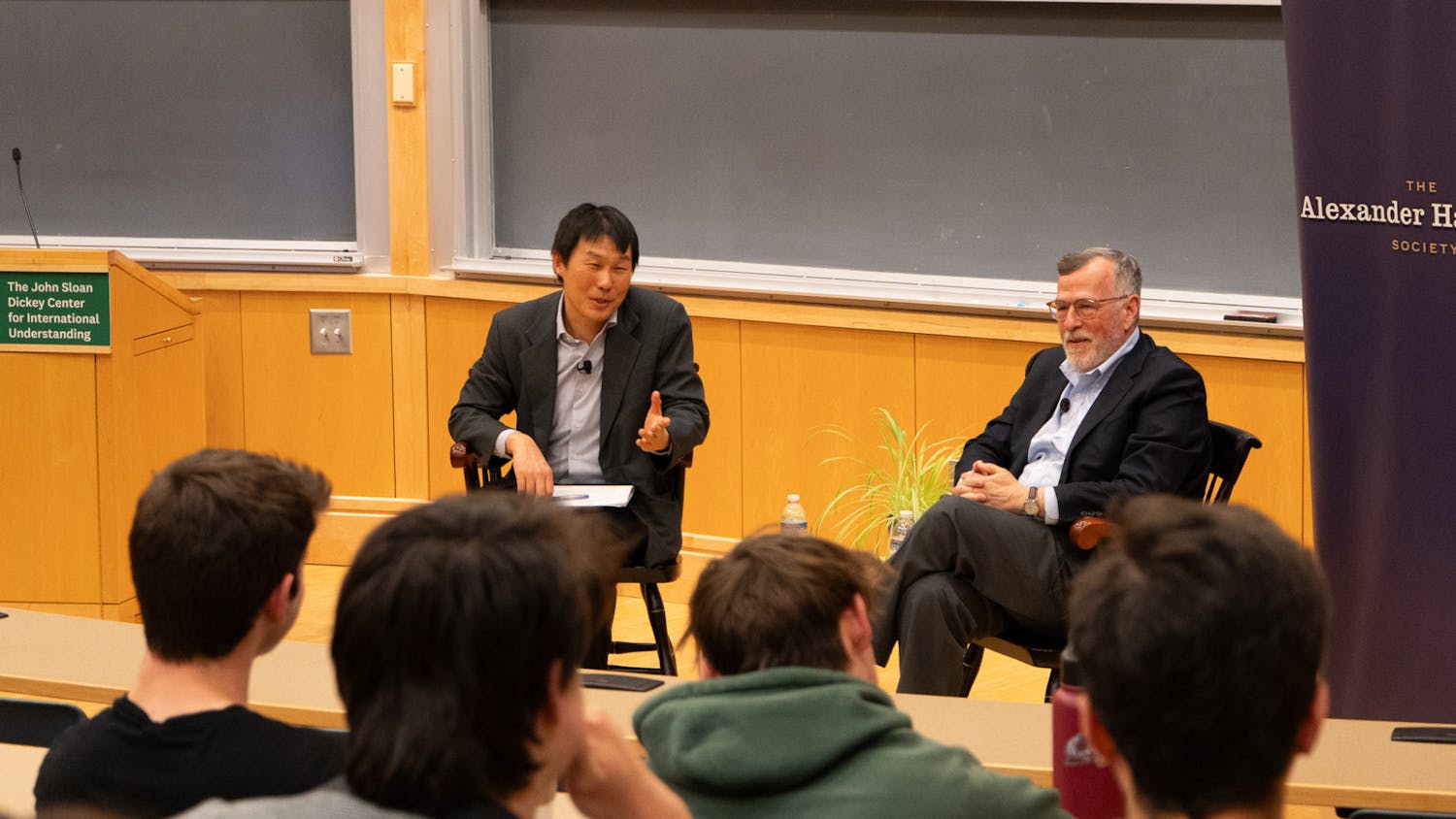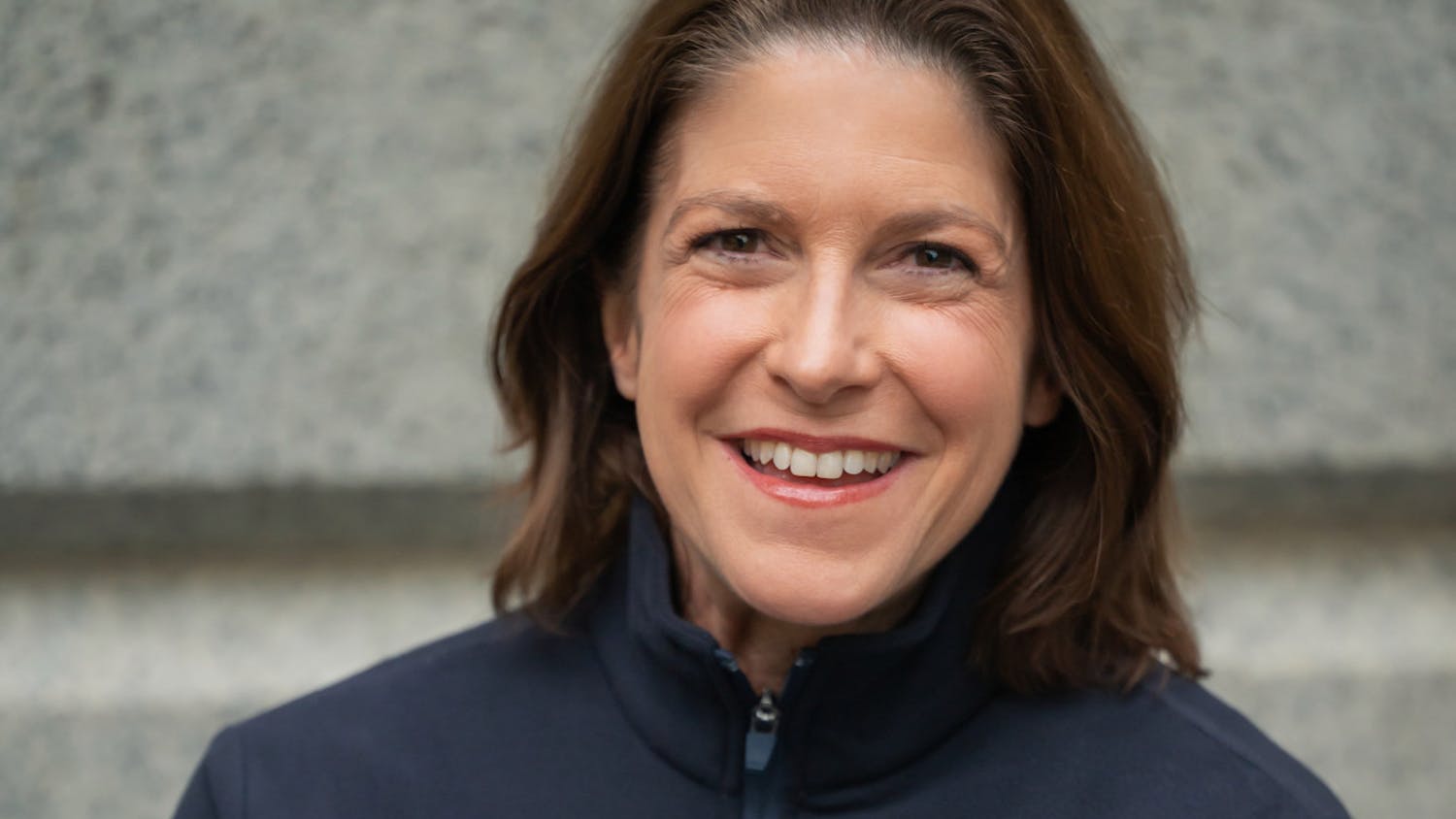Phyllis Deutsch became a lecturer for the Institute of Writing and Rhetoric in 2017 after retiring from her position as the editor-in-chief of the University Press of New England. This fall, she taught Writing 5, “Gender and the Holocaust,” which aims to challenge the male-oriented research of the Holocaust and to understand how gender affected the treatment of Jews in Europe.
How did you become interested in Jewish studies, and can you tell me more about being the editor-in-chief of the University Press of New England?
PD: When I was the editor-in-chief at the University Press of New England, I was actually responsible for a number of fields, and the Jewish studies field was associated with Brandeis University Press, which was one of the places we published for. I was the on-staff person who worked with them to publish Jewish books, and that’s how I initially became involved with that topic.
What made you choose to come to Dartmouth?
PD: My last job was at the University of Pennsylvania as a history professor in the 1990s, so I was looking for a new job because the University of Pennsylvania job wasn’t on the tenure track. I had worked in publishing when I was younger, and there was a job at the University Press of New England, which was a department of Dartmouth College. I always liked New England, so I applied and moved up here. I’ve been up here for 22 years. After I retired, I got a job in the Institute for Writing and Rhetoric.
Why did you start teaching? How do you think your previous profession influences your teaching style?
PD: I always enjoyed teaching — being a history professor for about eight years — and then I came up here to be a book editor. I was really happy to get back into teaching, and teaching writing turned out to be perfect because as a book editor, I had worked with people’s writing in a close and intimate way, so becoming a writing professor was an easy move. I have found that teaching Writing 5, “Gender and the Holocaust,” puts together everything that interests me in terms of the content of the course and teaching young people how to write clearly.
Holocaust survivor Judah Samet narrowly avoided death in the Pittsburgh synagogue shooting. Many say this is an instance of the Western European style of anti-Semitism coming to America. Do you agree with this claim, or do you think that anti-Semitism has always been a widespread problem in this country?
PD: Anti-Semitism was never the problem here that it was in Western Europe, but it was fairly pervasive until the post-war period — the 1950s — and then in the last half of the 20th century it seemed to have disappeared because Jewish Americans did very well in this country and felt at home and assimilated. I think what happened in the Pittsburgh synagogue was homespun anti-Semitism. It doesn’t have much to do with European anti-Semitism. It is, of course, a part of the reemergence of the right wing and its various prejudices.
What can we do at an individual level to combat anti-Semitism? Do you think it’s enough for people to condemn hate in general?
PD: I think that all forms of racialized hatred are related to one another. If you go at one, you are going at all of them. If a person is going to be an activist, they should select the form that is closest to their heart because that is where they are going to have the most energy. Any positive change in combating discrimination is going to raise all the boats, so it is probably best to be selective.
Can you explain the difference between anti-Semitism and anti-Zionism?
PD: I would say that there is a lot of confusion about those two things. I believe that some criticism of Israel is veiled anti-Semitism, but not all. You have to be very precise about what you are criticizing. They are two different things. Anti-Semitism and anti-Zionism have very different roots and political and cultural frameworks. If you focus on criticizing the policies of the Israeli government vis-à-vis its treatment of Palestinians, that is criticism of Israeli geopolitical thinking. If you start fomenting about Israel and the Jews and you begin to generalize about Jews, you are beginning to skirt into anti-Semitism. It can be a very fine line.
What do you hope your students take away from your class?
PD: In terms of content, I hope they’ll have a fundamental understanding of the worst atrocity of the 20th century and the degree to which it was a feature of patriarchal Western culture. In terms of writing, I want them to learn to omit needless words, and I tell them that every day. If they just do that, they’ll be 90 percent there.
This interview has been edited and condensed for clarity and length.



